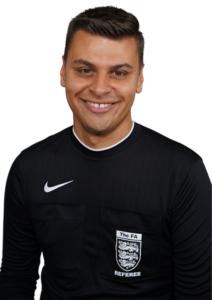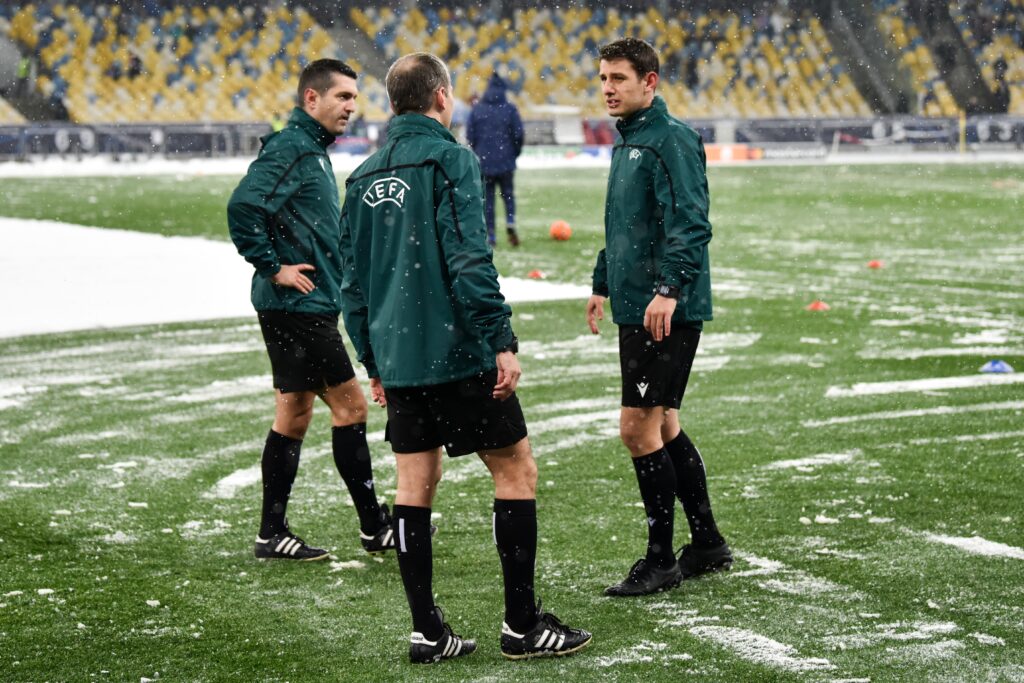Engaging in harsh self-criticism following a performance is a common reality for many referees. An important distinction to note is that while negative self-talk simply describes the general negative inner voice, self-criticism describes the negative self-evaluation after failing to meet a specific standard or expectation. This criticism may include focusing solely on mistakes, questioning one’s self-worth, and generalising the lack of success to other life events. Unfortunately, it is also common for officials to believe that harsh self-criticism is required to keep their refereeing ambitions alive. However, before proposing an alternative way to respond, focused on compassion and kindness toward oneself, it is helpful to explore ambition as a construct and the reasons many officials engage in excessive self-criticism.
What Is Ambition, And Why Is Self-Criticism The Standard?
While there are many definitions, ambition fundamentally describes the desire to succeed. Depending on the referee and situation, ambition can mean outperforming colleagues, while at other times, it can mean improving a skill. The ambitious nature of officiating challenges referees to cope with adversity, poor performances, and failure. Many officials believe meeting these demands requires self-criticism. In some cases, this type of self-criticism was present while reaching their current level of performance, with success then seen as resulting from listening to one’s own worst critic.
The question becomes, why fix something that has worked for a long time? Supported by the copious amount of energy poured into refereeing, officials frequently conclude perfection can be the only admirable outcome. The novelty of being compassionate to performance dips frequently feels not only uncomfortable to a referee but also a significant risk. Therefore, continuing with old, seemingly “effective” habits of being self-critical allows officials to find comfort. High self-criticism can become a never-ending cycle for referees, which, while comforting due to its familiarity, may prevent them from reaching their full potential. Yet, officials can learn how to respond with self-compassion instead of self-criticism to break this habitual cycle.
A Self-Compassionate Alternative: Being Present
In moments of self-criticism, referees often think about what they should have done in their last game, what their colleagues or their coach will think of them, or even what will happen to their career if they do not improve their performances. While the self-critical thoughts of each official are unique and often personal, they tend to focus on the past (e.g., a previous mistake) or the future (e.g., unpleasant consequences of their performance). This emphasis on the past and future deters a referee’s ability to be engaged in the present moment.
Most officials referee at their best when fully engaged in the present moment – one of the critical components of the flow experience. Responding with compassion towards themselves, officials are more likely to stay in the present moment and accept their mistakes while also understanding that mistakes do not define them. Instead of carrying the emotional heaviness of self-criticism, referees can untangle themselves from their thoughts and see the situation for what it is, not what they wish it would be. Through self-compassion, officials can explore their shortcomings with curiosity rather than judgment, allowing them to learn from their mistakes. Even further, a compassionate response is a source of hope, a motivator to try one more time, and a source of resilience to face refereeing’s inherent adversity.
A Self-Compassionate Alternative: Moving on From Mistakes
Responding with kindness also allows officials to respond efficiently to mistakes. The harsh self-criticism, commonly accompanying mistakes, results in negative emotions being associated with mistakes. It is, therefore, common for officials to ruminate on fears of failing and anxieties about one’s performance. To avoid these unpleasant inner experiences, referees may avoid new challenges or decrease their effort. They can even use unrealistic expectations to make failure inevitable, creating certainty and avoiding the discomfort of giving their best and still not succeeding. In these moments, self-compassion and present-moment awareness allows referees to acknowledge the discomfort of the present challenge without falling victim to the unproductive consequences of their self-critical thoughts. Officials can then embrace the challenge, meet adversity with motivation to succeed, and perform to their best ability, arguably, the epitome of ambition.
So, You Want to Be Ambitious?
Ultimately, being self-compassionate can allow referees to be more successful in a matchday environment. Being ambitious requires officials to separate themselves from their performance outcomes. While the desire to improve is necessary for refereeing and performance domain, harsh self-criticism can hardly be seen as a recipe for long-term success and enjoyment. To be truly ambitious, ask yourself, Can I be ambitious enough to do what best serves my performance, not what allows me to avoid emotional discomfort? Can I be ambitious enough to be kind to myself instead of harshly criticising myself? Can I be ambitious enough to be patient as I learn to treat myself with kindness and compassion? For officials beginning their journey to a more self-compassionate approach, I advise that they practice self-compassion in response to the perceived struggle and to their response to the adversity. Instead of being self-critical about one’s self-criticism, referees may start by noticing those moments of self-criticism and mindfully accepting them without feeling the need to change them.
At The Third Team I work individually and in collaboration with different professionals where I have developed workshops and 1-2-1 sessions associated with Resilience and Mental Toughness Development to help referees. The workshops and 1-2-1 sessions are interactive, where referees are encouraged to open up and share their experiences to help themselves and each other.
Feel free to contact me if you’d like to know more about my workshops or 1-2-1 sessions and how I could help you or your officials.
Best Wishes,

Nathan Sherratt
Referee Educator & Managing Director of The Third Team

Nathan Sherratt
Nathan Sherratt, Referee Educator, Resilience Trainer and Managing Director of The Third Team. A Mental Toughness Practitioner based in Tyne & Wear, North East England.

